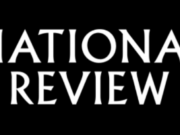This piece originally appeared in PennLive/The Patriot News on August 26, 2024.
A bill purporting to stop “foreign influence in elections” might sound like a good idea. But, as the saying goes, don’t judge a book by its cover.
Instead, we should judge this proposed law by its text. And a careful reading of the bill, which recently passed the Pennsylvania House of Representatives, reveals that it threatens fundamental free speech rights.
The bill would prohibit so-called “foreign-influenced corporations” from making political expenditures in Pennsylvania. However, the measure uses an absurd standard for “foreign-influenced”—a single foreign investor owning just 1% of a company’s equity, or all foreign investors collectively owning 5% or more, would make that company “foreign-influenced.”
This threshold is remarkably low, considering the global nature of modern financial markets. A stockholder owning 1% of a corporation can hardly be described as having any effective influence. Neither would 100 shareholders from different countries who collectively own 5% and didn’t act in concert with each other.
Some naturalized citizens allow relatives in foreign countries to own a small share of their business. It’s hardly the American way to say these small businesses can’t speak out.
The bill’s vagueness is as problematic as its breadth. It would classify a corporation as “foreign-influenced” if any foreign investor “participates directly or indirectly” in the company’s political activity decisions. This open-ended definition might include something as innocuous as a single foreign shareholder casting a vote on a shareholder resolution.
The lack of clarity around the law’s provisions will cause companies to self-censorship, especially smaller firms that can’t afford to hire lawyers to try to figure it out. That uncertainty would chill free speech and deprive the public of valuable perspectives.
Suddenly, a company that is not being “influenced” by foreign interests in a practical sense but meets the bill’s arbitrary definition will no longer be willing or able to speak out on issues that impact community employment, business practices, economic development, and more.
The Center for American Progress, which supports such measures, estimates that as much as 98% of publicly traded companies would qualify as “foreign-influenced” under rules like those in the bill. So, the actual effect of the legislation would be to bar corporations from speaking about elections.
This legislation represents a brazen attempt to defy the U.S. Supreme Court’s ruling in Citizens United v. FEC, which affirmed that corporations have a constitutional right to political speech. In that decision, the Court said that a restriction “not limited to corporations or associations that were created in foreign countries or funded predominantly by foreign shareholders” would be unconstitutional. The ordinary meaning of predominantly is most, not 1% or 5%.
If the bill becomes law, a legal challenge is nearly certain—as is the state’s likelihood of defeat in court. Similar laws recently adopted in Minnesota and Maine were both ruled unconstitutional. If passed, the state will waste precious tax funds on a doomed legal defense and then pay again when the court orders the state to reimburse the plaintiff’s attorney’s fees.
The bill is also a “solution” in search of a problem. Federal laws already effectively bar foreign money in elections, with the Congressional Research Service reporting little evidence of systematic intrusion. Despite the claimed focus on “foreign influence,” the poorly drafted measure’s largest impact would be on Americans.
Fears of corporate takeover after Citizens United haven’t materialized; corporate spending remains a small fraction of total political expenditures. Instead, the ruling has diversified political speech, allowing more voices to be heard without relying on party leaders or media elites.
Misguided fears about Citizens United and corporate involvement in politics should never justify stripping Americans of free speech rights. For most businesses, political speech is a crucial tool to defend their interests and those of their employees when threatened by government action. Elected officials shouldn’t be able to insulate themselves from criticism by those they govern, especially when these efforts fly in the face of a constitutional right.
Robust, open debate that includes all voices is best for our democracy. If passed, this bill would harm that ideal rather than protect it.














